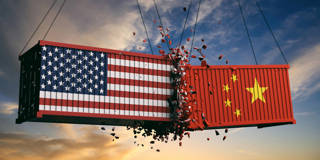Kishore Mahbubani
Says More…
This week in Say More, PS talks with Kishore Mahbubani, a distinguished fellow at the Asia Research Institute at the National University of Singapore and the author of Living the Asian Century: An Undiplomatic Memoir.
Project Syndicate: Last year, you suggested that a prevailing “culture of pragmatism,” exemplified by the Association of Southeast Asian Nations (ASEAN), explains the lack of major wars in Asia in recent decades. How should this inform efforts by Western diplomats to engage with Asia, and where do you currently see the kind of “geopolitical incompetence” that could lead to war?
Kishore Mahbubani: Western diplomats must first understand how much power has shifted from Europe to Asia. In 1980, the European Union’s GDP was ten times larger than China’s. Today, the two are roughly equal. Goldman Sachs projects that China’s GDP will be nearly double that of the EU by 2050. When power shifts, behavior must change. European diplomats have become addicted to sanctions and threats. They must now break that addiction, and return to the traditional means of diplomacy: persuasion and compromise.
Also, it was foolish of NATO Secretary-General Jens Stoltenberg to suggest the expansion of NATO to Asia. NATO’s militaristic culture would pose a threat to the longstanding peace in the region. More broadly, Europeans need to change their attitude toward Asia, learning from the region, instead of lecturing it.
